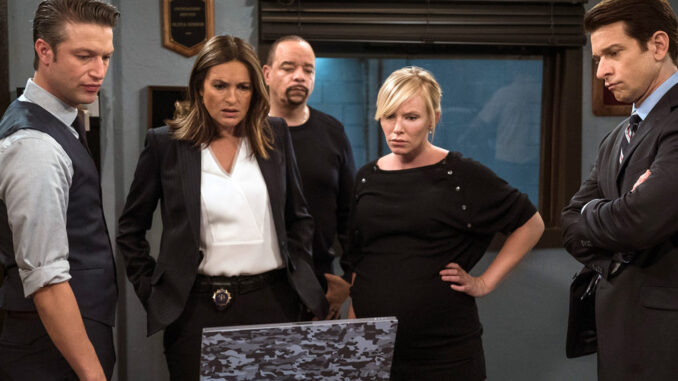
The Enduring Echo: SVU and the Unfolding Legacy
The news landed not with a bang, but with the familiar, resonant thrum of a deeply embedded cultural rhythm: NBC has renewed Law & Order: SVU for its 28th season. In an era of fleeting attention spans, streaming churn, and the constant birth and death of new content, this announcement isn't just a programming update; it's a declaration. It’s a testament to the show’s impossible longevity, a testament to its singular ability to reflect, challenge, and ultimately endure. More than just a television series, SVU has become an institution, a living, breathing chapter in the ever-expanding saga of the Law & Order franchise, continuing a legacy so profound it has practically etched itself into the bedrock of American television.
Twenty-eight seasons. The number itself is almost mythical, placing SVU in a pantheon reserved for only the most resilient of cultural artifacts. It’s not merely the longest-running live-action primetime series in U.S. television history; it is television’s equivalent of an ancient oak, weathering storms, shedding old leaves, and continually finding new ways to root itself deeper into the soil of the zeitgeist. This phenomenal endurance isn't an accident; it's a calculated triumph of form, function, and a willingness to confront the darkest corners of human experience with a consistent, unflinching gaze.
The Law & Order franchise, born from Dick Wolf's innovative "ripped from the headlines" format, established a procedural blueprint that redefined crime drama. It presented a clear, two-part narrative: the investigation, then the prosecution, all underpinned by a gritty, realistic aesthetic. But SVU, emerging in 1999 as a specialized offshoot, carved its own distinct, and arguably more emotionally potent, niche. It narrowed its focus to "specially heinous" crimes – sexual assault, child abuse, domestic violence – and in doing so, it elevated the procedural from mere puzzle-solving to profound social commentary. This was the show that dared to give voice to the voiceless, to shine a spotlight on victims who, for too long, had been relegated to the shadows or sensationalized. This specialization became its strength, its unique contribution to the franchise's legacy: not just law and order, but justice for the most vulnerable.
For nearly three decades, SVU has held an unflinching mirror to the evolving tapestry of human experience and social conscience. It has tracked the shifts in legal discourse, the emergence of new technologies used for harm, and the seismic shifts in societal understanding of consent, gender identity, and systemic injustice. From the early days of DNA evidence to the #MeToo movement, from internet predators to the complexities of identity politics, SVU has not just dramatized headlines; it has processed them, interrogated them, and presented them to a mass audience, often sparking vital conversations in living rooms across America. It is a living, breathing archive of our collective anxieties and our slow, arduous journey towards greater empathy and accountability.
At the heart of this enduring echo is Captain Olivia Benson, portrayed with unparalleled gravitas and evolving nuance by Mariska Hargitay. Benson is more than just a character; she is the empathetic core, the North Star of the Law & Order universe, a figure of unwavering moral fortitude in a world often devoid of it. Her journey from ambitious detective to compassionate leader mirrors the show's own growth, demonstrating a commitment to personal evolution alongside institutional change. Hargitay’s real-world advocacy through the Joyful Heart Foundation has further blurred the lines between actor and character, imbuing Benson with an authenticity and impact that transcends the screen. She embodies the franchise’s legacy of fighting for justice, but with a deeply personal, human touch that resonates with millions.
The renewal for Season 28 is not merely a sign of continued viewership, but a testament to its ritualistic comfort for its audience. In a world spiraling with uncertainty, the rhythmic "dun-dun" that signals the scene change, the familiar cadence of exposition, and the promise of a case resolved (or at least, pursued with relentless determination) offers a peculiar kind of solace. It’s a weekly reminder that even in the face of unspeakable darkness, there are dedicated individuals committed to upholding the fragile tenets of justice.
So, as Law & Order: SVU gears up for its twenty-eighth chapter, it carries with it not just its own illustrious history, but the formidable weight of the entire Law & Order franchise. It is a living testament to the power of procedural storytelling, a cultural compass reflecting our societal evolution, and a relentless advocate for the voiceless. Its legacy is not just one of television longevity, but of sustained relevance, profound impact, and an unwavering commitment to making sense of the "specially heinous" – one season, one case, one "dun-dun" at a time. The echo continues, resounding louder than ever.
